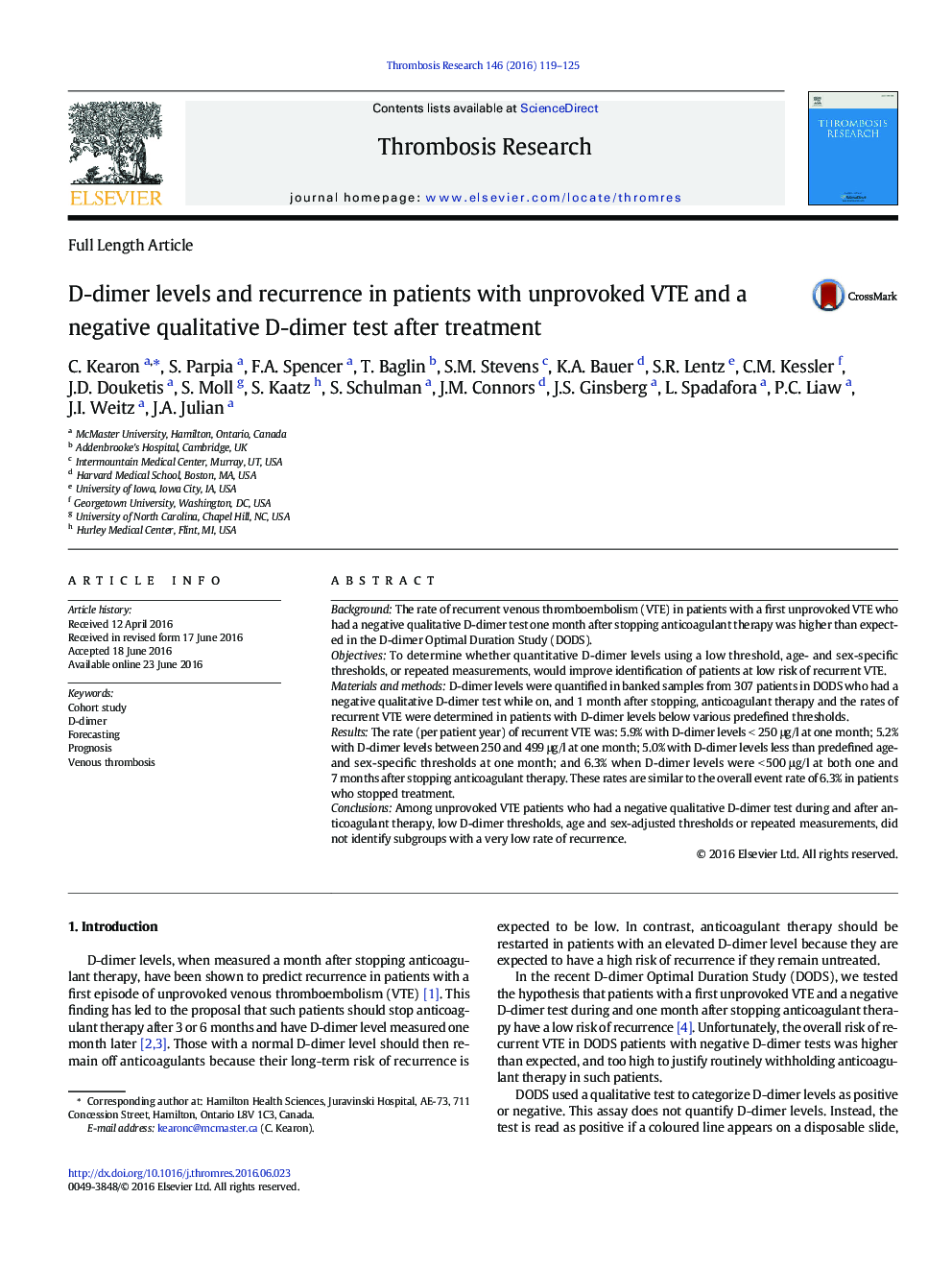| Article ID | Journal | Published Year | Pages | File Type |
|---|---|---|---|---|
| 6000339 | Thrombosis Research | 2016 | 7 Pages |
â¢Recurrences were high after unprovoked VTE with a negative qualitative D-dimer test.â¢Low quantitative D-dimer levels might better identify low risk patients.â¢We assessed very low, sex- and age-specific, and repeated D-dimer levels.â¢None of these testing strategies were able to identify a very low recurrence risk.
BackgroundThe rate of recurrent venous thromboembolism (VTE) in patients with a first unprovoked VTE who had a negative qualitative D-dimer test one month after stopping anticoagulant therapy was higher than expected in the D-dimer Optimal Duration Study (DODS).ObjectivesTo determine whether quantitative D-dimer levels using a low threshold, age- and sex-specific thresholds, or repeated measurements, would improve identification of patients at low risk of recurrent VTE.Materials and methodsD-dimer levels were quantified in banked samples from 307 patients in DODS who had a negative qualitative D-dimer test while on, and 1 month after stopping, anticoagulant therapy and the rates of recurrent VTE were determined in patients with D-dimer levels below various predefined thresholds.ResultsThe rate (per patient year) of recurrent VTE was: 5.9% with D-dimer levels < 250 μg/l at one month; 5.2% with D-dimer levels between 250 and 499 μg/l at one month; 5.0% with D-dimer levels less than predefined age- and sex-specific thresholds at one month; and 6.3% when D-dimer levels were < 500 μg/l at both one and 7 months after stopping anticoagulant therapy. These rates are similar to the overall event rate of 6.3% in patients who stopped treatment.ConclusionsAmong unprovoked VTE patients who had a negative qualitative D-dimer test during and after anticoagulant therapy, low D-dimer thresholds, age and sex-adjusted thresholds or repeated measurements, did not identify subgroups with a very low rate of recurrence.
